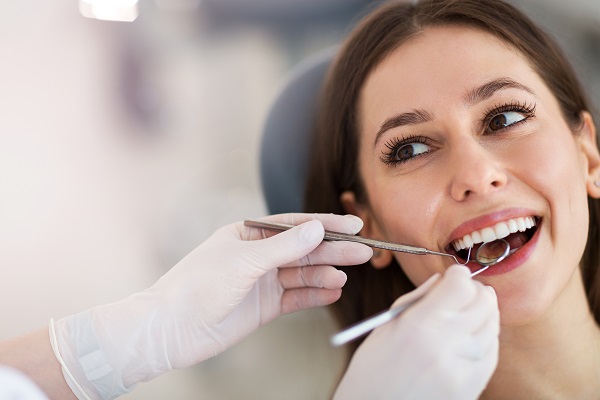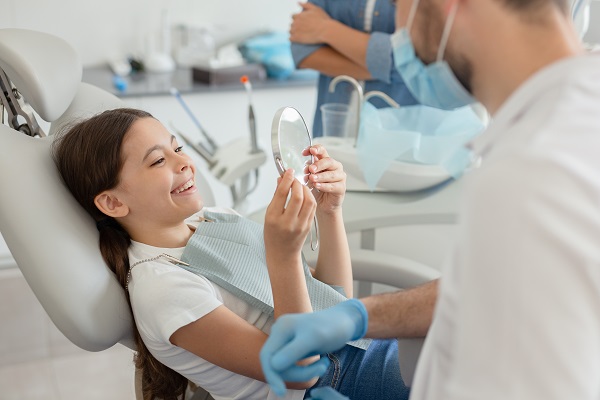Preventive Dental Care Reduces the Risk of Contracting Oral Health Conditions

Preventive dental care is a great way to help reduce the risk of oral health conditions. Preventive dental care includes regular checkups, brushing teeth twice a day, and flossing at least once daily. These tasks can be time-consuming and seem trivial, but they are crucial for maintaining good oral hygiene.
The American Dental Association recommends that we brush our teeth at least twice per day and floss daily. We visit the dentist every six months for cleanings and other treatments such as sealants or fluoride treatment. This article will discuss the benefits of each task and how important they are to maintaining good preventive dental care.
Brushing your teeth
Brushing your teeth should be a priority every day, even if you do not have time for everything else in your daily routine. If possible, brush before going to bed since food particles begin staining teeth while we sleep. It is also essential to brush your teeth after eating, such as breakfast and lunch, since food particles can stay in the mouth for hours on end if they are not brushed away properly. Some of these fragments might contain acids that cause tooth decay or cavities over time.
Brushing twice a day will remove plaque from your teeth which contains bacteria that can cause gum disease and cavities if left alone. It is also a good idea to brush your teeth after consuming sugary or acidic foods, such as fruit juices or soda pop, since the acid wears away at tooth enamel over time. Although brushing your teeth might seem like a hassle, it will help prevent health conditions from developing in your mouths, such as gum disease or cavities.
Flossing
Brushing your teeth is a good idea, but it might not prevent all oral health conditions in the future. Flossing should be done once per day after brushing to remove food particles from between teeth that are hard to reach when using a toothbrush.
Even if you have healthy gums, food particles can get stuck between teeth, and the only way to remove them is with dental floss. Plaque can also accumulate in these hard-to-reach areas over time, turning into tartar if it isn't removed by brushing or flossing regularly.
It's essential for people of all ages to floss their teeth since it will help prevent gum disease and cavities. Dental floss can be purchased in children's sizes for younger people who have not developed the skill to use traditional string floss yet. Teens should also floss regularly even if they are past their teenage years because food particles get stuck between teeth, leading to plaque over time.
Talk to a dentist about oral health basics
Although these tasks can sometimes be tedious or inconvenient, they are crucial for maintaining good oral hygiene and freeing oral health conditions like gum disease. If you need help with flossing your teeth properly, ask a dentist to demonstrate how it should be done until you get the hang of it yourself. By following these basic tasks, you will be able to prevent plaque and tartar from forming on your teeth, leading to gum disease or cavities.
Request an appointment here: https://www.leardidental.com or call Leardi Family Dentistry at (610) 444-8744 for an appointment in our Kennett Square office.
Check out what others are saying about our services on Yelp: Read our Yelp reviews.
Recent Posts
A kid-friendly dentist treats oral health concerns in children. However, an equally important part of their job is to work with parents to improve their child’s oral hygiene at home. This is because the majority of oral care takes place away from the office, so parents knowing how to help their child maintain a beautiful…
A dental implants restoration can replace a missing tooth that falls out naturally, gets knocked out or is extracted. A dental implant restoration is often recommended after tooth extraction, as it prevents bone loss from occurring and offers cosmetic and functional benefits. There are several ways to replace a missing tooth after an extraction, including with…
If you desire a more aesthetically pleasing smile, dental veneers are options that you should consider. Veneers are thin, customizable shells created to cover the front sides of the teeth. A dentist will often suggest this option when there are imperfections on the teeth, some of which are covered in this article.Teeth gaps are called…
Periodontics is a branch of dentistry that prioritizes issues that affect the gums and the bone structures that hold teeth in place. It also includes replacing missing teeth with restorations like implants. Periodontics favors implants because these are the only teeth replacement options that replace teeth roots. Other oral prosthetics, like dentures and bridges, only replace a…


